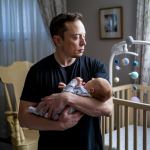Elon Musk Commits Millions to Tackle Homelessness with Innovative Housing Solutions
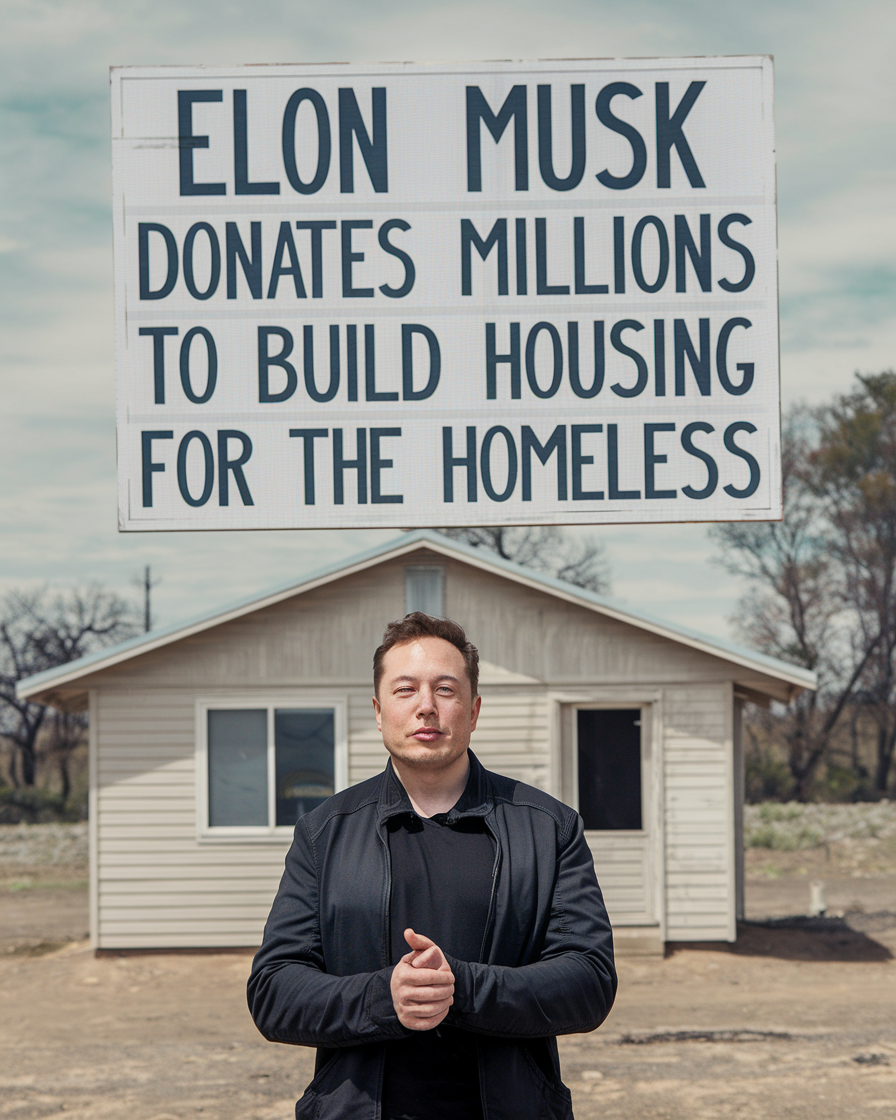
In a world where billionaires often make headlines for their extravagant lifestyles or ambitious business ventures, Elon Musk is once again proving he’s a visionary with a heart for change. The tech mogul and CEO of Tesla, SpaceX, and xAI has reportedly pledged millions of dollars to address one of society’s most pressing issues: homelessness. This bold move not only highlights Musk’s commitment to philanthropy but also underscores his knack for applying innovative thinking to real-world problems. Under hashtags like #ElonMusk, #Charity, #HomelessAid, and #Philanthropy, this initiative is sparking conversations about how wealth and technology can intersect to create meaningful impact.
In this article, we’ll dive into the details of Elon Musk’s latest charitable endeavor, explore how it aligns with his broader mission, and examine the potential ripple effects on homelessness aid worldwide. From tiny homes to sustainable communities, here’s everything you need to know about Musk stepping up to provide homes for those in need.
A Game-Changing Donation to Combat Homelessness

Elon Musk’s donation of millions to build housing for the homeless isn’t just another headline—it’s a potential game-changer. While exact figures and timelines are still emerging, reports suggest that Musk has committed significant funds to design and construct affordable, innovative housing solutions. This isn’t the first time Musk has turned his attention to housing; in recent years, he’s hinted at using his wealth and resources to tackle societal challenges beyond space exploration and electric vehicles.
The donation aligns with Musk’s track record of thinking outside the box. Rather than simply writing a check to existing charities, he appears to be taking a hands-on approach, leveraging his companies’ expertise to create scalable housing models. Imagine Tesla-inspired tiny homes powered by solar energy or SpaceX-engineered materials repurposed for durable, low-cost shelters. This initiative could redefine how we address homelessness, blending philanthropy with cutting-edge technology.
For those searching for terms like “Elon Musk charity” or “Elon Musk homeless housing,” this move signals a shift in how billionaires engage with social issues. It’s not just about giving money—it’s about building solutions.
Why Homelessness? Understanding Musk’s Motivation
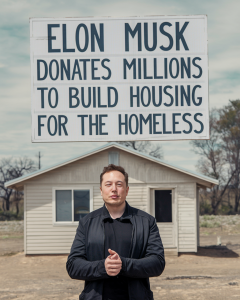
Homelessness is a global crisis, affecting millions of people across urban and rural landscapes. In the United States alone, over 600,000 individuals experience homelessness on any given night, according to the U.S. Department of Housing and Urban Development. The causes are complex—ranging from economic inequality and housing shortages to mental health challenges and systemic failures. So why has Elon Musk, a man known for colonizing Mars and revolutionizing transportation, turned his focus to this earthly issue?
One clue lies in Musk’s philosophy of maximizing human potential. He’s often spoken about creating a better future for humanity, whether through sustainable energy or interplanetary travel. Homelessness, in many ways, represents a failure to unlock that potential—a barrier preventing individuals from thriving. By addressing it, Musk may see an opportunity to apply his problem-solving mindset to a tangible, immediate need.
Additionally, Musk’s personal journey could play a role. Having once lived modestly in a tiny house himself (a $50,000 prefab home in Texas), he understands the power of simple, efficient living spaces. His donation could be an extension of that ethos: proving that affordable housing doesn’t have to mean low quality. For those Googling “Elon Musk philanthropy,” this initiative offers a glimpse into how his life experiences shape his charitable priorities.
The Vision: Tiny Homes and Sustainable Communities
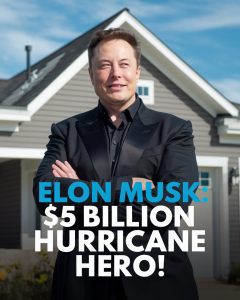
So, what might Elon Musk’s homeless housing project look like? While specifics are still unfolding, early indications point to a focus on tiny homes—compact, affordable residences that maximize space and minimize cost. Musk has previously teased the idea of using Tesla’s solar technology and battery storage to power such homes, making them not only accessible but also environmentally friendly.
Picture this: rows of sleek, modern tiny homes equipped with solar panels, offering shelter to those in need while reducing their carbon footprint. These homes could be built quickly using modular construction techniques, a method Musk’s companies have explored for other projects. Add in features like water recycling systems or SpaceX-inspired insulation, and you’ve got a blueprint for sustainable, scalable housing.
Beyond individual homes, there’s potential for entire communities. Posts on X have speculated about “Golden Age Communities” featuring gardens, parks, and organic food production—self-sufficient ecosystems where residents can rebuild their lives. Keywords like “Elon Musk tiny homes” or “sustainable housing solutions” are already buzzing online, reflecting public excitement about this fusion of charity and innovation.
How Musk’s Companies Could Shape the Project
Elon Musk isn’t just a donor—he’s a builder. His donation of millions to homeless housing could tap into the resources of his vast business empire. Tesla, for instance, brings expertise in renewable energy and efficient design. Solar roofs and Powerwall batteries could make these homes energy-independent, slashing utility costs for residents and organizations managing the properties.
SpaceX, meanwhile, could contribute advanced materials or logistics know-how. The same engineering that sends rockets into orbit might optimize housing construction, ensuring durability and affordability. Even xAI, Musk’s AI venture, could play a role—perhaps by designing smart systems to manage community resources or predict maintenance needs.
This synergy between Musk’s philanthropy and his companies sets this initiative apart from traditional charity. It’s not just about funding—it’s about reimagining. For readers searching “Elon Musk homeless aid,” this integration of tech and goodwill is a key takeaway.
The Broader Impact on Homelessness Aid
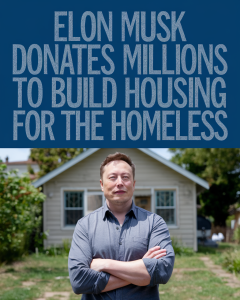
If successful, Musk’s housing project could have far-reaching implications. First, it might inspire other billionaires to follow suit, shifting philanthropy from passive donations to active problem-solving. Imagine Jeff Bezos or Bill Gates launching their own housing initiatives, spurred by Musk’s example.
Second, it could influence public policy. Governments struggling to address homelessness might look to Musk’s model as a template, partnering with private innovators to scale solutions. Cities like Los Angeles, where homelessness has surged, could benefit from affordable, tech-driven housing experiments.
Finally, there’s the human impact. Providing homes isn’t just about shelter—it’s about dignity, stability, and opportunity. For individuals and families, Musk’s donation could mean a fresh start, breaking the cycle of poverty and displacement. Search terms like “HomelessAid solutions” or “philanthropy impact” tie directly to this ripple effect, making this story resonate with socially conscious readers.
Challenges and Criticisms to Consider
Of course, no bold idea comes without hurdles. Critics might argue that Musk’s donation, while generous, is a drop in the bucket compared to the scale of homelessness. Millions of dollars can build homes, but systemic issues like job scarcity and healthcare access remain. Will this be a one-off project, or can it scale to meet the need?
There’s also the question of execution. Musk is notorious for ambitious timelines—think Tesla production delays or Starship setbacks. Could this housing initiative face similar challenges? Skeptics might search “Elon Musk charity criticism” to see how his past efforts, like the Musk Foundation’s struggles with IRS requirements, cast doubt on his follow-through.
Public perception is another factor. Some view Musk as a hero, while others see him as a polarizing figure tied to political controversies. His involvement could politicize the project, alienating certain communities or donors. Still, Musk’s track record suggests he thrives on overcoming obstacles—turning skeptics into believers one innovation at a time.
How You Can Stay Informed and Get Involved

Elon Musk’s donation to build housing for the homeless is still in its early stages, but it’s already generating buzz. To stay updated, follow hashtags like #ElonMusk and #HomelessAid on X, where users are sharing rumors, praise, and predictions. News outlets will likely track progress as details emerge, so keep an eye on terms like “Elon Musk housing project” in your searches.
Want to contribute? While Musk’s millions lead the charge, grassroots efforts matter too. Donate to local homeless shelters, volunteer your time, or advocate for housing policies in your area. Musk’s initiative might inspire a movement, but it’s collective action that sustains change.
Conclusion: A New Chapter in Musk’s Legacy
Elon Musk’s decision to donate millions to build housing for the homeless marks a pivotal moment in his journey from tech titan to philanthropist. It’s a bold step that marries his innovative spirit with a commitment to social good, offering hope to those in need while challenging the status quo of charity. Whether through tiny homes, sustainable communities, or a reimagined approach to homelessness aid, Musk is once again pushing boundaries.
As this project unfolds, the world will be watching. Will it redefine how we tackle homelessness? Could it cement Musk’s legacy as more than just a billionaire dreamer? For now, one thing is clear: with hashtags like #Philanthropy and #Charity lighting up the internet, Elon Musk is proving that wealth, when wielded with purpose, can build more than empires—it can build homes.










